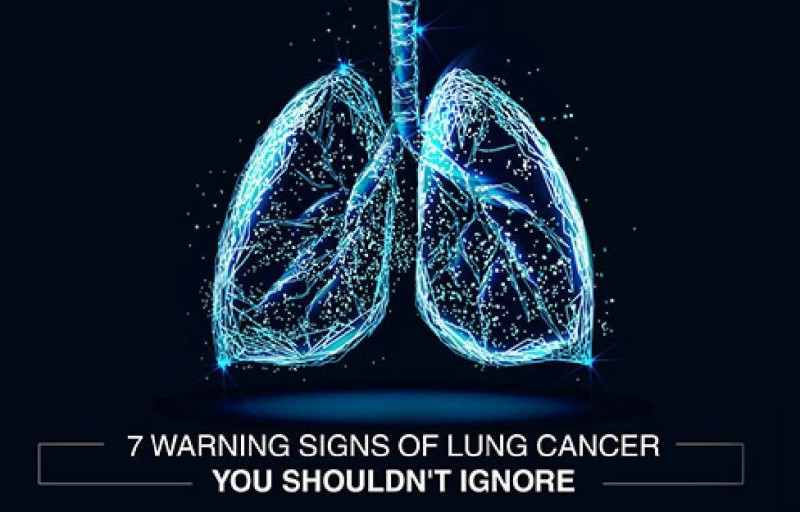
Lung cancer is a serious condition that affects millions of people worldwide. It is crucial to be aware of the early warning signs, as early detection can significantly improve the chances of successful treatment. Early symptoms of lung cancer may include a worsening cough or shortness of breath, depending on which part of the lung is affected and which type of lung cancer the patient has. Lung cancer typically doesn't cause signs and symptoms in its earliest stages. Signs and symptoms of lung cancer typically occur when the disease is advanced. As the cancer develops, these symptoms may become more severe or intense. Here are seven early symptoms of lung cancer that you should be mindful of:
Persistent Cough: If you have a lingering cough that lasts for more than a few weeks, it's essential to take notice. A persistent cough is one of the most common early symptoms of lung cancer. It may worsen over time and may produce blood or rust-colored sputum.
Shortness of Breath: Feeling breathless or experiencing difficulty in breathing, especially with minimal physical activity, could be a sign of lung cancer. Tumors in the lungs can obstruct air passages, leading to shortness of breath.
Chest Pain: Lung cancer may cause chest pain that is persistent and may worsen with time. The pain can be dull, aching, or sharp and might be felt in the chest, shoulders, or back.
Unexplained Weight Loss: If you are losing weight without trying or experiencing significant and unexplained weight loss, it could be a cause for concern. Lung cancer can cause the body to consume more energy, leading to unintended weight loss. Patients with lung cancer can gain or lose weight. The tumors of small-cell lung cancer sometimes cause the body to make a hormone called ACTH. ACTH, in turn, causes the body to make cortisol. Too much cortisol causes fluid retention and weight gain. Other patients, however, lose weight — usually caused by the higher calcium levels that cause loss of appetite.
Fatigue and Weakness: Ongoing fatigue and weakness that don't improve with rest might be a symptom of lung cancer. Cancer-related fatigue can be debilitating and impact daily activities.
Hoarseness or Voice Changes: Lung cancer can affect the nerves and structures near the lungs, leading to hoarseness or changes in the voice.
Recurrent Respiratory Infections: If you are experiencing frequent lung infections, such as bronchitis or pneumonia, it could be an early sign of lung cancer, particularly in individuals with a history of smoking.
It is essential to remember that these symptoms can be caused by various other conditions as well, and having one or more of these symptoms does not necessarily mean you have lung cancer. However, if you experience any of these symptoms persistently, it's essential to seek medical attention for proper evaluation and diagnosis.
Keep in mind that early detection is crucial for the effective treatment of lung cancer. If you have concerns about your lung health or have a history of smoking or exposure to lung cancer risk factors, it's advisable to consult with a healthcare professional. Regular check-ups and lung cancer screenings, when recommended, can play a significant role in detecting lung cancer at an early stage and improving overall outcomes.
7 Common Symptoms of Bone Cancer
How Does the Body's Cancer Spread? Study Unearths a Secret
10 Precautionary Measures for Lung Cancer